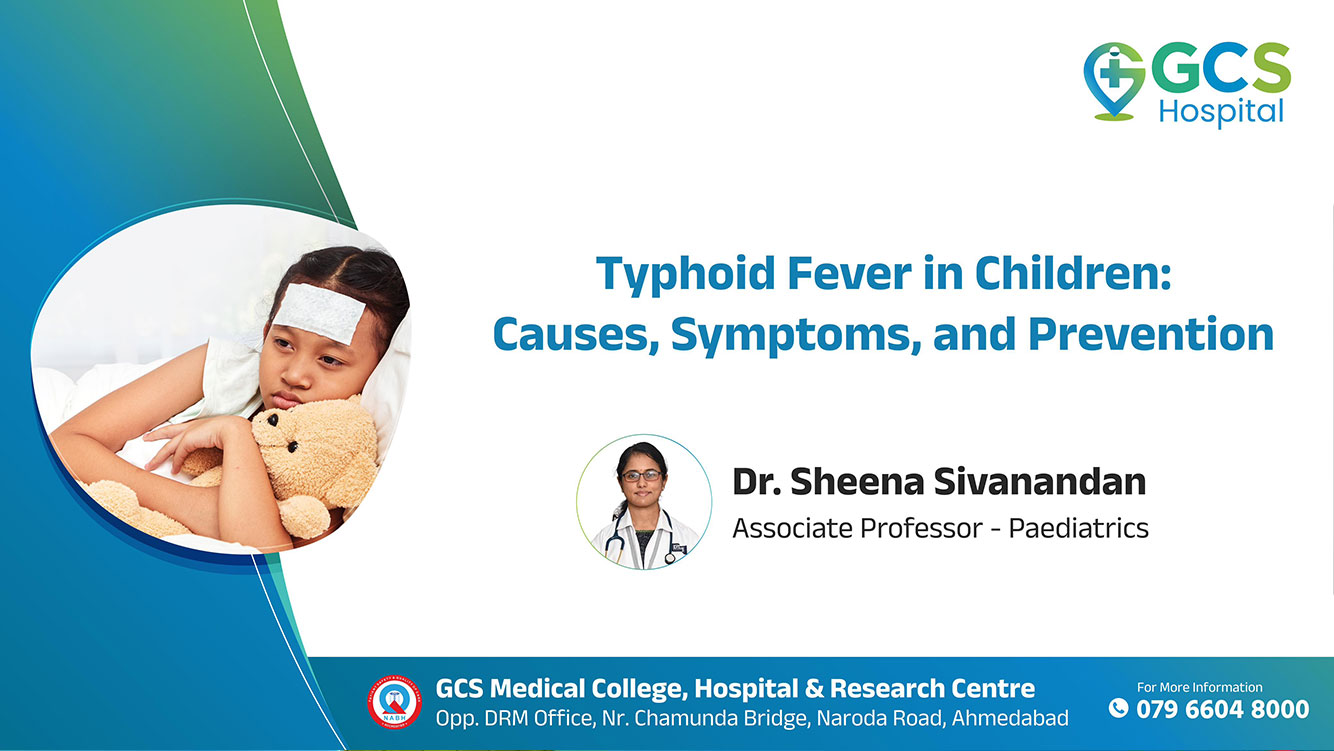
Typhoid Fever in Children: Causes, Symptoms, and Prevention
by : Dr Sheena Sivanandan - Associate Professor - Paediatrics16 January 2025
Typhoid fever, also called enteric fever, is a significant health concern for children. It is crucial for parents and caregivers to recognize its causes, symptoms, and preventive measures. At GCS Hospital, we are committed to educating families and ensuring the best care for our little patients. Here's a comprehensive overview of typhoid fever and how you can protect your child from this illness.
Understanding Typhoid Fever
Enteric fever is caused by Salmonella Typhi and Salmonella paratyphi bacteria. These harmful microbes enter the body through contaminated food or water. Areas with poor sanitation and poor hygiene are particularly susceptible, increasing the risk of exposure for children.
Symptoms in Children
Children with typhoid fever may experience:
- Persistent high fever
- Abdominal pain
- Headaches
- Rash
- Extreme tiredness
- Reduced appetite
- Digestive discomfort (diarrhea or constipation)
If your child shows these signs, consult a healthcare professional immediately. Early diagnosis and treatment can prevent complications.
Causes of Typhoid Fever in Children
- Contaminated Food and Water: The primary source of typhoid infection is unsafe food and water, especially in unsanitary environments.
- Faecal-Oral Transmission: Bacteria from infected individuals can contaminate surfaces, food, and water, spreading the illness.
- Close Contact with Infected Individuals: Living or interacting closely with an infected person increases the risk.
- Asymptomatic Carriers: Some individuals carry Salmonella Typhi without showing symptoms, unknowingly spreading the bacteria.
- Travel to Endemic Areas: Exposure in regions with high typhoid prevalence adds to the risk, especially when consuming local food or water.
Prevention Measures
- Ensure Safe Food and Water: Always provide clean, filtered water and avoid unsafe food sources.
- Practice Good Hygiene: Teach your children to wash their hands before meals and after using the toilet.
- Vaccination: Typhoid vaccines are an effective preventive step. GCS Hospital offers vaccination services.
- Maintain Cleanliness: A clean environment helps minimize exposure to bacteria.
- Avoid Contact with Infected Individuals: Practice caution around individuals with typhoid fever.
Treatment and Care
Typhoid fever is treatable with prescribed antibiotics which are prescribed by the doctor. To ensure recovery:
- Complete the full course of medication.
- Encourage rest and hydration.
- Provide a balanced, nutrient-rich diet.
- Take care of hand hygiene for prevention of repeated episodes
- Typhoid vaccination
At GCS Hospital, we are dedicated to safeguarding your child's health through expert care and preventive measures. Together, we can create a healthier, typhoid-free community.